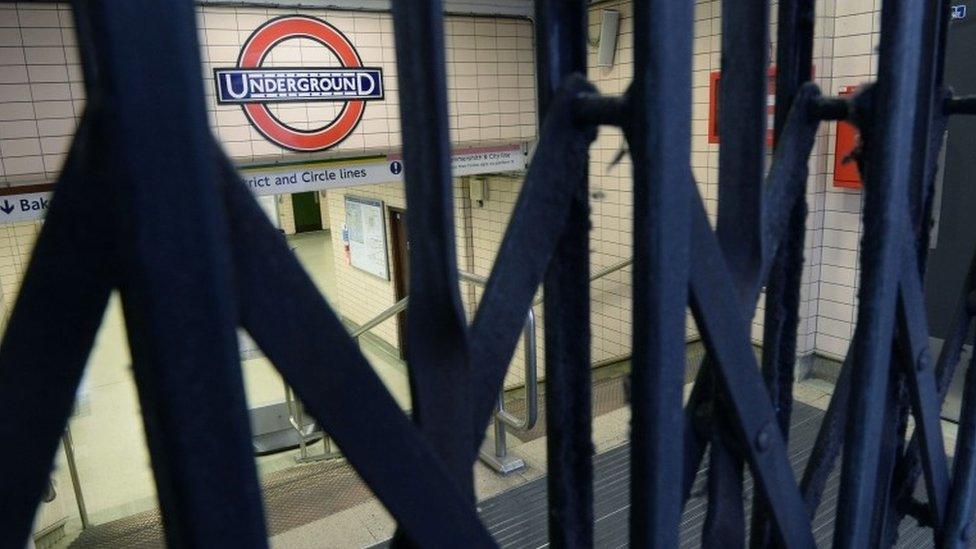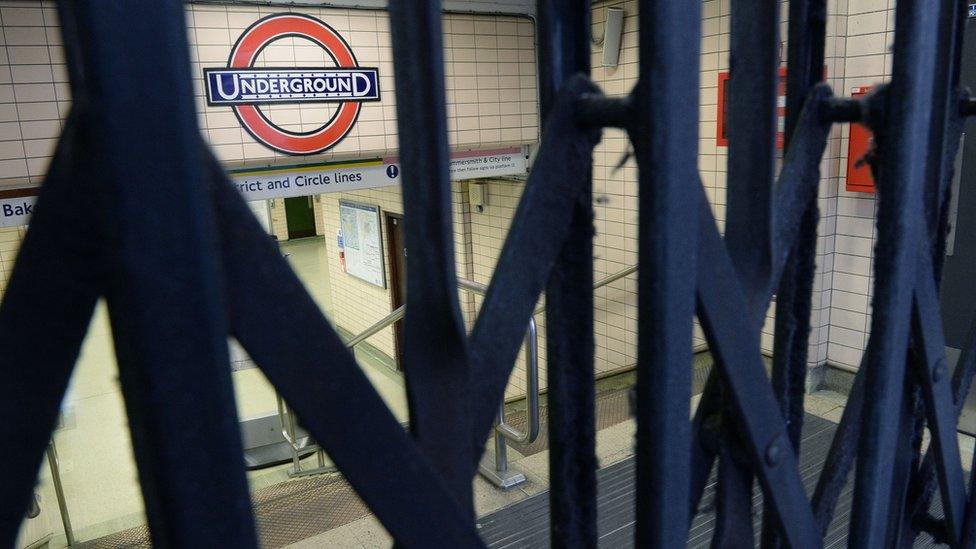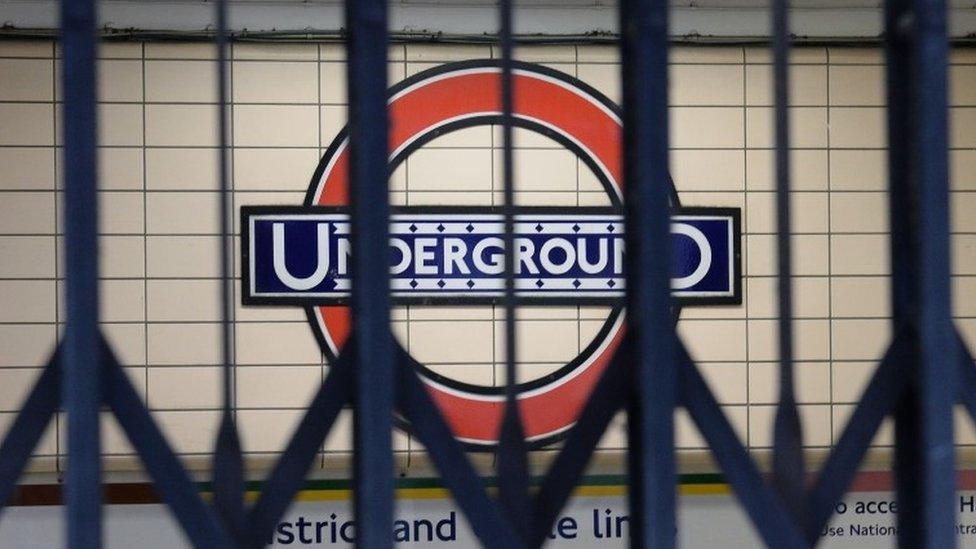Why there could be a 48-hour Tube station staff strike this weekend
- Published
- comments

Some stations could be closed due to the strike
On 5 February 2014 there was a strike on the Tube over ticket office closures.
At the time I described the changes as some of the most radical in the history of the Tube.
Almost exactly two years on and we are on the brink of another strike over the same issue.
Back then, further strikes were called off when the late Bob Crow received assurances that: "London Underground had agreed a station-by-station review of the ticket office closures, which could mean that some will stay open."
That didn't happen and nearly all ticket offices were shut by last December.
And what followed was a huge reorganisation.
Lone working and promotion
Staff have been moved from behind ticket offices onto gate lines - driven by the use of Oyster cards and bankcards - and around 838 staff have been cut, to save about £40m a year.
This is called the Fit for the Future (FFTF) programme and it has fundamentally changed the way staff work on the Underground.
The choice of dates for this weekend's station staff strike is no coincidence.
Sunday is the start of new rotas in the King's Cross, Central Line East and Leytonstone areas of the Tube.
Staff still have concerns over lone working, what happens to their pay if they don't take promotion to supervisor level, and weekend working.
The dispute pre-dates the Night Tube, but it ended up being combined with those by London Underground bosses.
Now it seems those issues have become un-coupled again.
Only the Rail Maritime and Transport (RMT) union station staff will go on strike on Saturday for 48 hours, not train drivers.
Unhappy at changes
About 70% of station staff are represented by the RMT; the rest are with the Transport Salaried Staffs' Association (TSSA), who are not walking out.
So there will be disruption on Sunday and Monday, with some stations opening later or not opening at all. But the trains will be running.
Two years ago all grades represented by the RMT, including drivers, walked out. The union has reduced the impact of the dispute by requesting only its station staff members walk out.
There have been some positive noises from the last-minute talks.
But these concerns are long held by Tube staff, and even if the strikes are called off, some will be unhappy at these changes.
- Published5 February 2016

- Published5 February 2016
